American Labor Day: The History You Never Learned
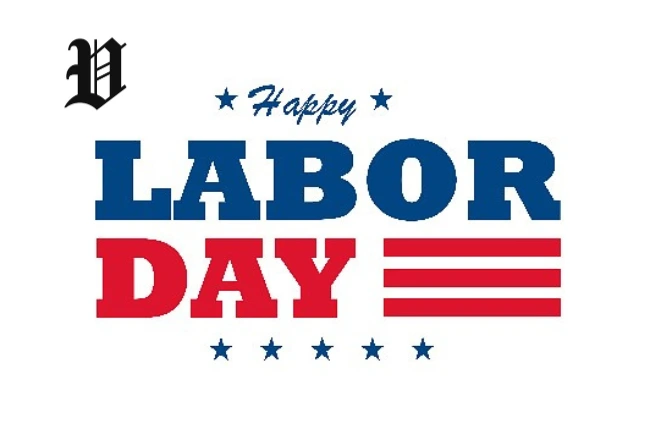
Alright, let’s set the scene. It’s the first Monday of September. You’re probably not reading this right now because you’re off work. Maybe you’re firing up the grill, squeezing in one last lake trip, or just blissfully ignoring your email. This Labor Day weekend is our unofficial end of summer, a cherished national pause button.
But have you ever wondered, while lounging in a patio chair, why this holiday even exists? I mean, who looked at the calendar and said, “You know what we need right here? A Monday off in September.”
I used to think it was just a random day for sales and barbecues. Then I dug into the story. And let me tell you, the history of American Labor Day is anything but random. It’s a raw, thrilling, and sometimes violent tale of protest, power, and the fight for the very concept of a weekend. It’s a story that involves a mysterious bomb, a political scandal, and why our holiday is completely different from the rest of the world’s.
So, grab your drink of choice. Let’s rewind the clock to when getting a single day off was a radical dream.
The Powder Keg: What Made Labor Day Necessary
To get why Labor Day was such a big deal, you have to forget our modern world for a second. Picture America in the late 1800s. It’s the Industrial Revolution, and it’s brutal.
Factories and railroads are booming, and they’re hungry for workers. Cities are packed with people—including brand-new immigrants—all working in conditions that would make your head spin:
- No Such Thing as ‘Weekend’: A 12 to 16-hour workday, every single day of the week, was standard. Sundays? Maybe a half-day, if you were lucky.
- Work Could Literally Kill You: Safety regulations? What were those? Losing a finger, an arm, or your life was a common risk.Additionally, injury rendered you unemployed..
- Poverty Was the Point: Entire families, including young children, worked for pennies just to afford a cramped room in a slum.
This era was nicknamed the “Gilded Age” because a thin layer of gold (the insane wealth of oil and railroad barons) covered a core of cheap, rusty metal (the crushing poverty of everyone else). From this injustice, a new sound emerged: the collective voice of workers organizing into unions. They started asking for the unthinkable: a living wage, safer machines, and the right to rest.
People also see: Vegas Reimagines Oz: AI-Powered Spectacle at Sphere
The First Parade: A Radical Idea in New York
So, who created Labor Day? This is where the story gets fun, because historians still play a game of he-said-she-said. The popular version gives credit to Peter J. McGuire, a bigwig in the early labor movement.
But many people (especially those from New Jersey!) will swear it was actually Matthew Maguire, a machinist and a key member of the Central Labor Union (CLU) in New York. Whoever had the lightbulb moment, it was the CLU that made it real. They planned the first Labor Day parade.
Tuesday, September 5, 1882
Imagine this. Thousands of workers boldly took an unpaid day off—a huge gamble—and marched through the streets of Manhattan. This wasn’t a party; it was a protest with a purpose. But they were clever. They made it a spectacle. There were bands playing, women waving banners, and thousands of men in their union regalia. They showed their strength not with fists, but with organization and pride.
After the march, they broke out the picnics and beer. Kids ran around while speakers talked about workers’ rights. This combination of protest and community celebration set the tone for every Labor Day parade that followed. The idea of celebrating Labour Day was born.
The event was a smash hit. The idea of a “workingmen’s holiday” spread from New York to other cities. But it was still just a local tradition, not a law. It would take a national tragedy to turn this idea into a federal holiday.
The Bomb That Changed Everything: Hello, September
Now, here’s the plot twist that answers the million-dollar question: why is Labor Day in September?
See, the labor movement was rallying around a powerful idea: the eight-hour workday. Their slogan was perfect: “Eight hours for work, eight hours for rest, eight hours for what we will!” They called for a massive strike on… May 1, 1886.
The protests in Chicago were huge but peaceful. Then, on May 4th, everything exploded. At a rally in Haymarket Square, someone—a person never caught—threw a bomb at police. Chaos erupted. Seven officers and several civilians died in the violence.
The “Haymarket Affair” became a global news event. In a trial that was pretty clearly unfair, eight anarchists were convicted; four were hanged. The event created a terrifying link in the public’s mind between May 1st and violence, radicalism, and communism.
And this, right here, is the key. American leaders and more conservative unions wanted NOTHING to do with that association. They needed a new, peaceful, all-American Labor Day observance. The existing September celebration was the perfect candidate. By choosing it, they completely distanced the American worker from the radical International Workers Day on May 1. It was a brilliant, and deliberate, PR move.
A President in Trouble: Grover Cleveland’s Quick Fix
By 1894, Labor Day was already a holiday in many states. But it took a crisis to make it national. That crisis was the Pullman Strike.
Workers making fancy railroad cars near Chicago went on strike over cruel wage cuts. In solidarity, the massive American Railway Union, led by Eugene V. Debs, refused to handle any Pullman cars, bringing the nation’s railroads to a halt.
President Grover Cleveland sent in federal troops to break the strike. It got ugly. Really ugly. More than a dozen workers were killed in the clashes.
The public was furious. Cleveland, facing a political nightmare, needed to do something—fast. And he did. Just six days after the strike ended, he signed the law that made Labor Day a national holiday. He picked the September date to align with the peaceful parades and to firmly, forever, avoid the taint of May 1st.
So, which president started Labor Day? It was Grover Cleveland, and he did it as a giant “I’m sorry” to the workers his troops had just attacked. I told you it was a good story.
People also see: Las Vegas Dining 2025: The Complete Guide to Steakhouses, Pho, and Iconic Restaurants
So, What About Canada? Do They Have This Too?
This is a question I get all the time: “Does Canada celebrate labor day?”
Yes! A thousand times, yes. Canada observes Labor Day on the exact same day. But their story has its own flavor.
| Feature | Labor Day in the USA | Labour Day in Canada |
|---|---|---|
| When is it? | First Monday in September | First Monday in September |
| How’d it start? | First parade in 1882; Federal holiday in 1894 | First parade in 1872; Federal holiday in 1894 |
| The Trigger | The Haymarket Affair & Pullman Strike | The Toronto Printers’ Strike |
| The Original Goal | Create a peaceful, patriotic workers’ holiday | Legalize trade unions and celebrate their value |
| Today’s Vibe | Honors workers; says goodbye to summer | Honors workers; says goodbye to summer |
Canadian Labour Day has its own rich history, rooted in a 1872 strike for a shorter workweek. Their movement gained steam and also led to a federal holiday in 1894. So, to be clear: yes, Canada has Labor Day, and its story is just as powerful as ours.
Labor Day Today: The Echo of the Fight
Over time, the fierce edge of Labor Day has softened. For most of us, it’s less about unions and more about community and well-earned rest.
Our modern Labor Day traditions are all about that feeling:
- Parades: Some towns still hold them, a nostalgic nod to the past.
- Barbecues: The undisputed champion of Labour Day celebration.
- Sports & Sales: The weekend kicks off the NFL season and every store’s biggest sale.
- The Last Hurrah: That powerful feeling of the unofficial end of summer.
But the significance of Labor Day is still there, if you listen for it. That weekend you’re enjoying? The eight-hour day? The fact that your workplace (hopefully) isn’t a death trap? You can thank the folks who marched over a century ago for that. Honoring Labor Day is about remembering that fight.
Stuff You Might Be Curious About
Q: No, really, who do I thank for this holiday?
A: It’s a historical mystery! The popular choice is Peter J. McGuire, but strong evidence points to Matthew Maguire. The true credit probably goes to the entire Central Labor Union in New York for pulling off that first parade.
Q: Why is it always on a Monday?
A: Thank the Uniform Monday Holiday Act of 1968. Congress decided we needed more three-day weekends. Since Labor Day was already on a Monday, it just locked in that first September spot permanently.
Q: Wait, does Canada have Labor Day?
A: They do! Canada celebrates Labour Day (they spell it with a ‘u’) on the exact same Monday we do. Their history is different but just as cool, starting with a printers’ strike in Toronto in 1872.
Q: Why doesn’t the U.S. celebrate on May 1st like other countries?
A: The short answer: the Haymarket Bombing in 1886. It made May 1st too radical and scary for the U.S. government. They picked the existing September date to create a more peaceful, “American” style of Labor Day observance.
Q: What’s the difference between Labor Day and Memorial Day?
A: I mix this up too! Memorial Day (in May) is a solemn day to honor military members who died serving the country. Labor Day (in September) is a celebratory day to honor the achievements of all American workers.
Q: Can you tell me the dates for the next couple of years?
A: Absolutely! Mark your calendar:
- Labour Day 2025 Canada & USA: Monday, September 1, 2025. The weekend is August 30 – September 1. Plan those parties now
Your Day Off Has a Story
The history of American Labor Day is a messy, human, and ultimately triumphant story. It’s a reminder that the benefits we take for granted were fought for by real people who risked everything.
So this year, on Monday, September 2, 2024, or Monday, September 1, 2025, as you’re laughing with friends and family, take just one second to think about it. Remember the courage it took to demand a simple day of rest. That’s the real meaning of Labor Day. It’s the story in your day off.

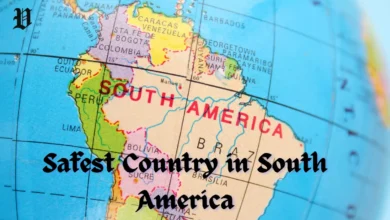
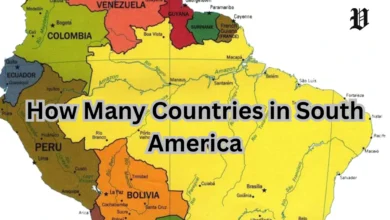
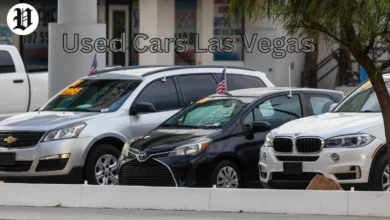
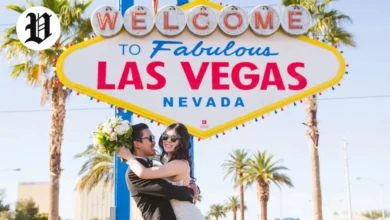
One Comment